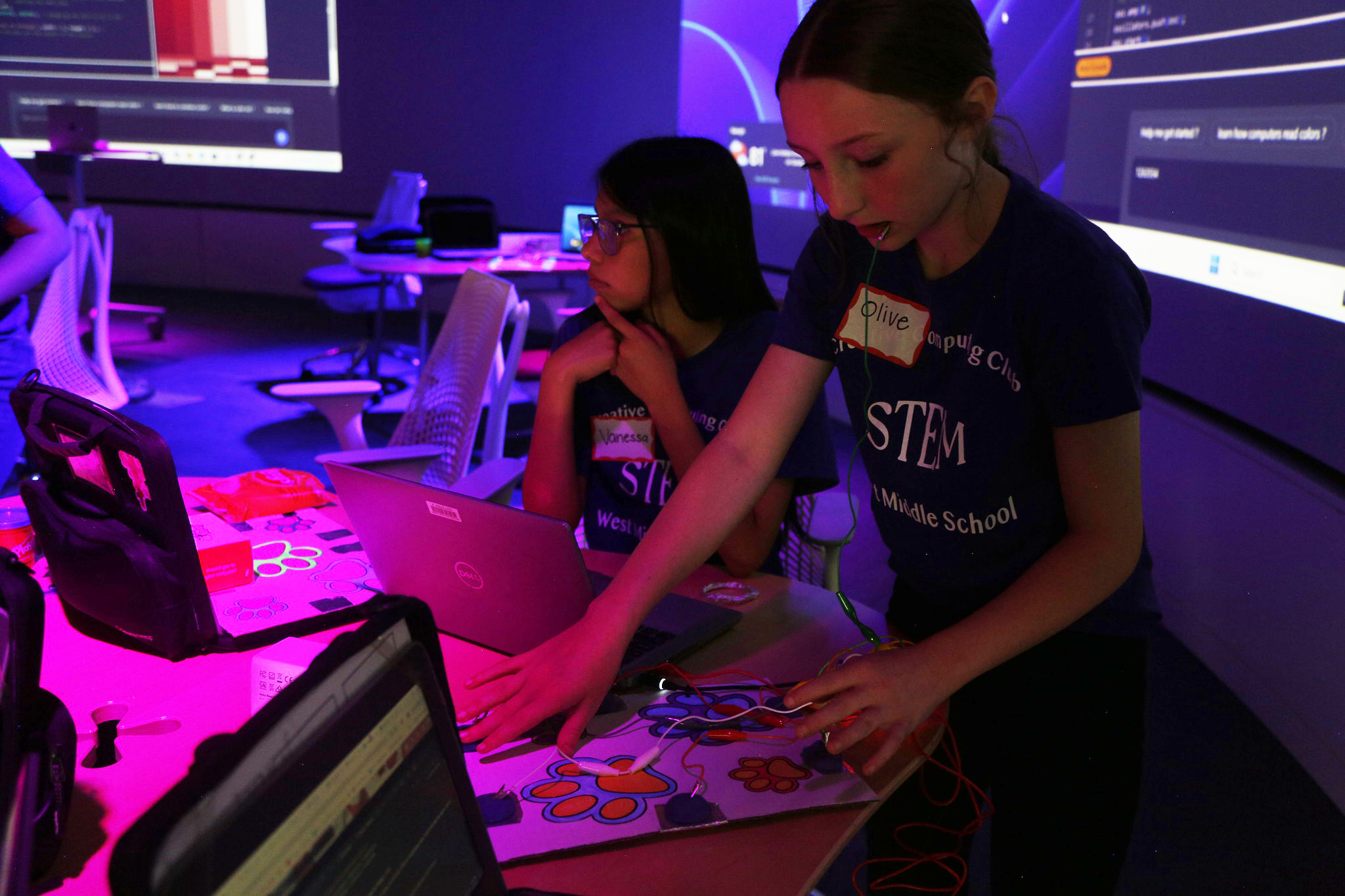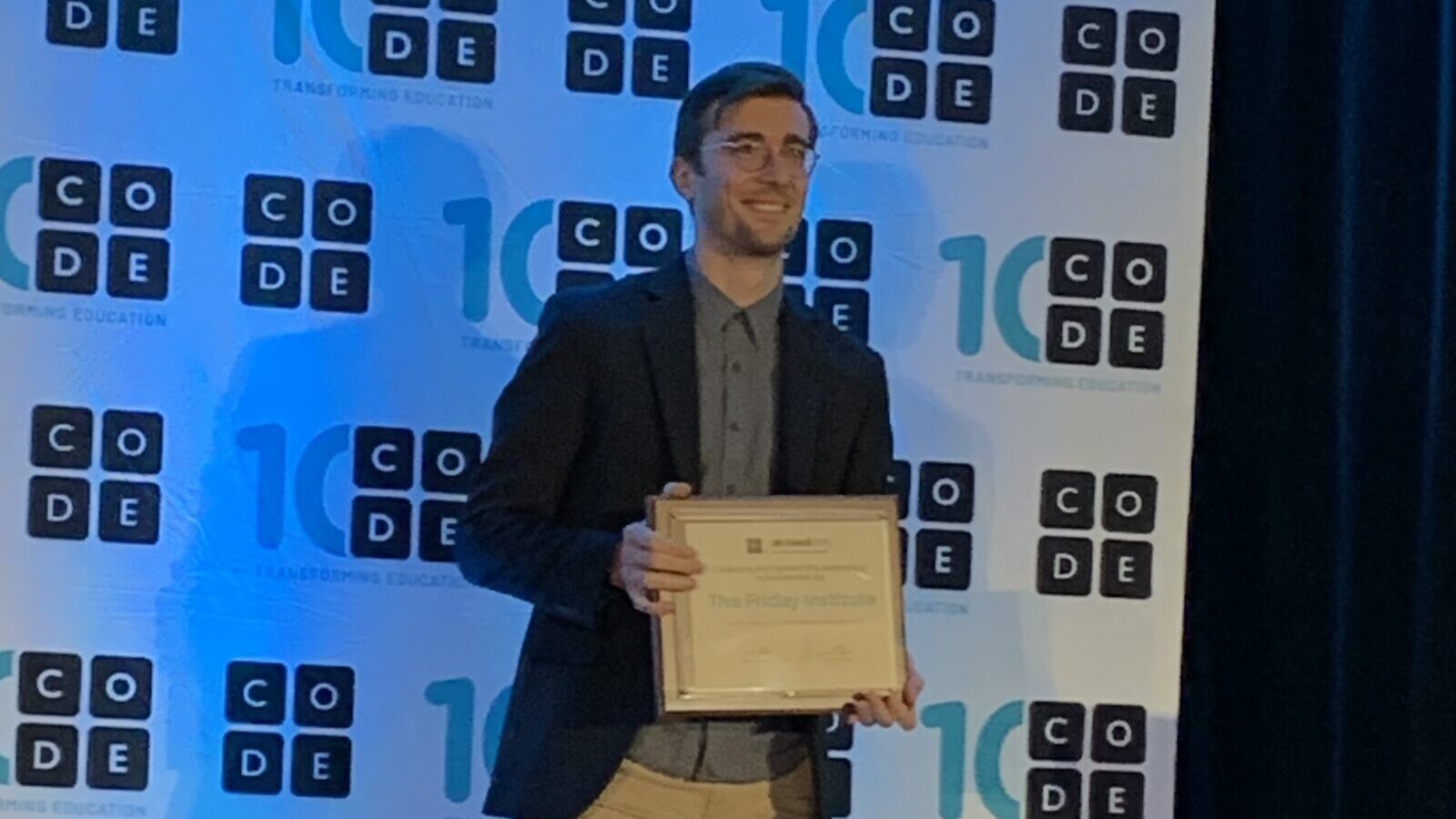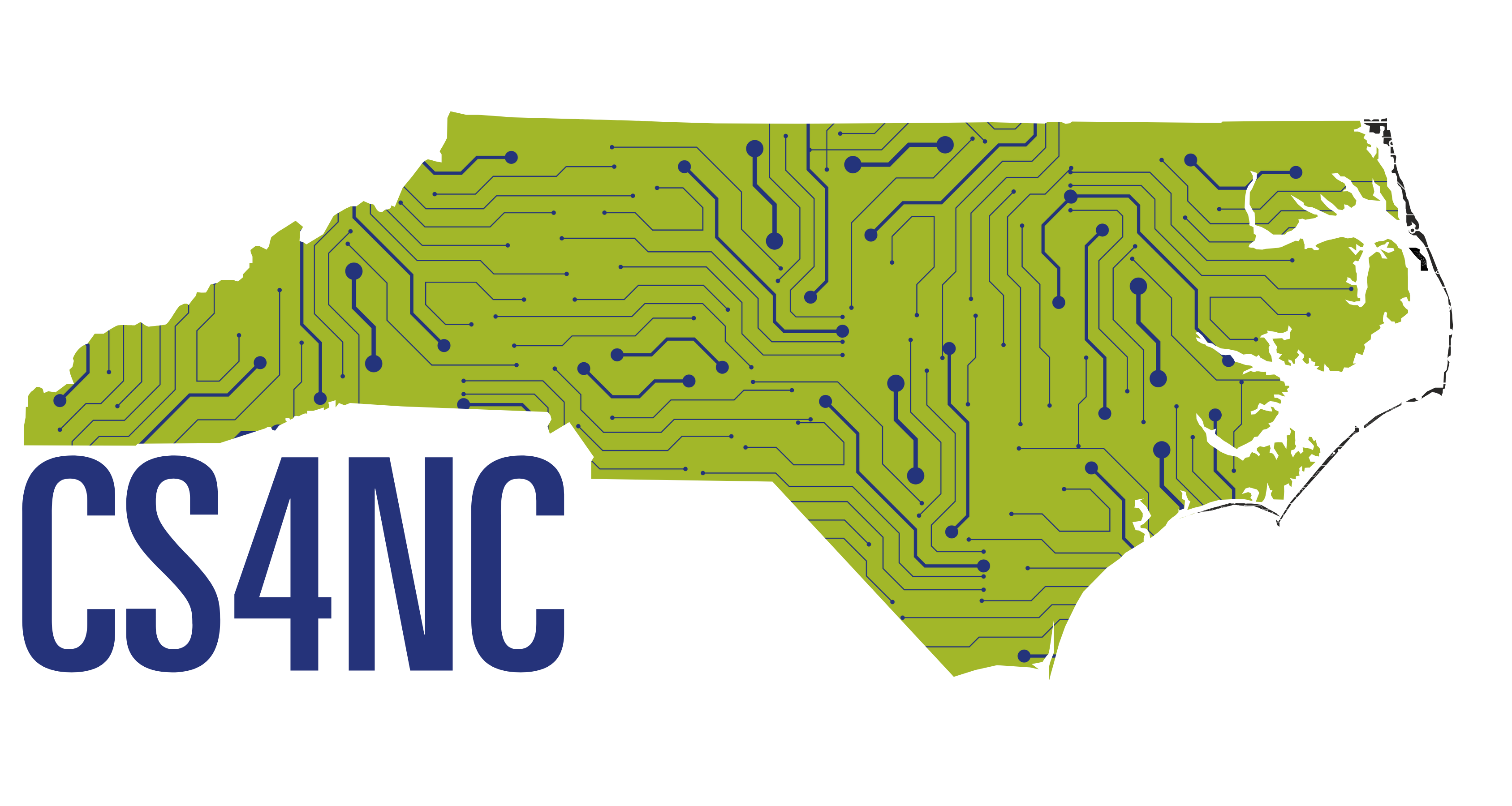Computer Science for North Carolina Convening Provides Guidance, Gathers Key Stakeholders for Implementing Computer Science Across the State
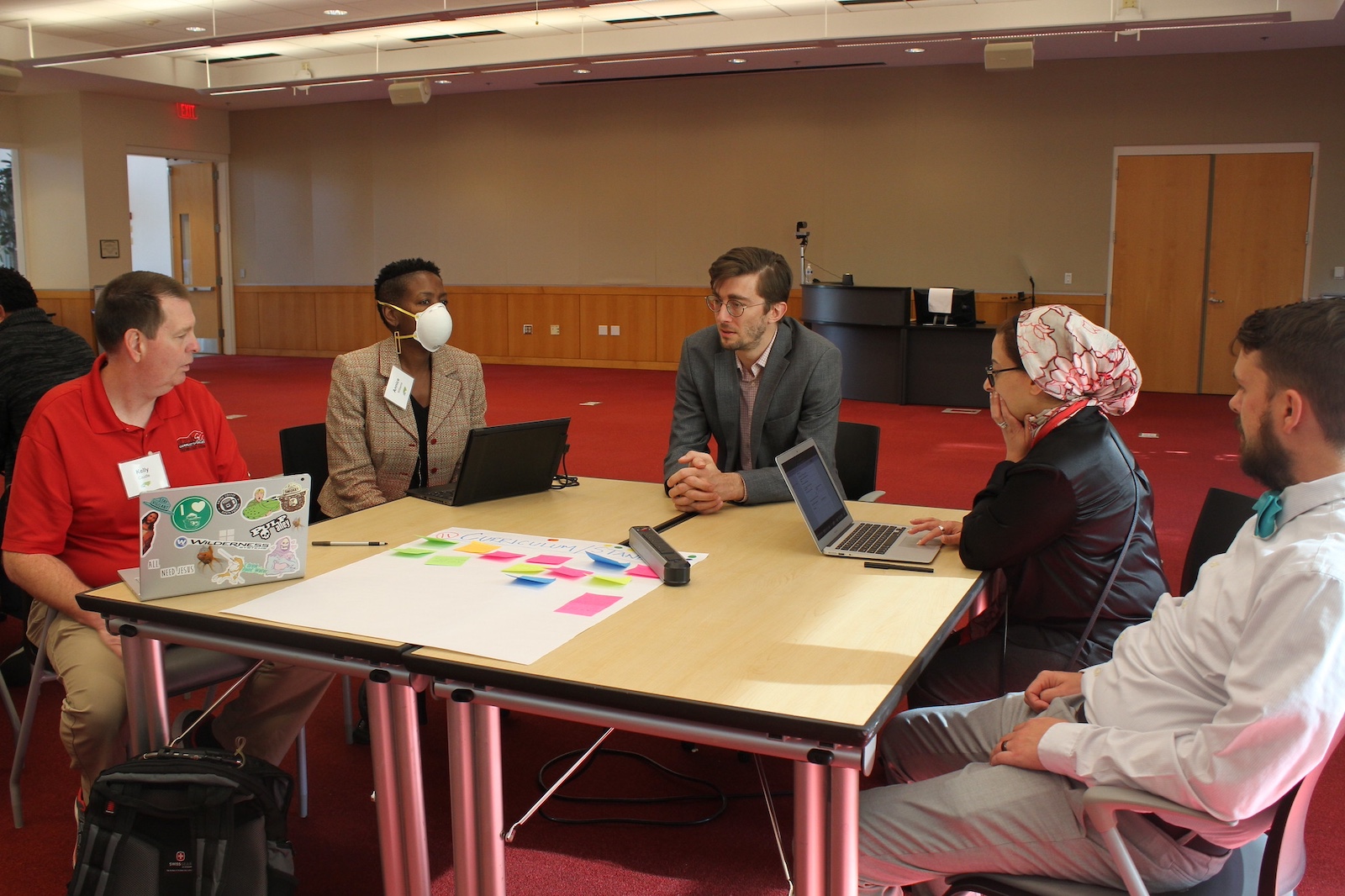
In collaboration with the Expanding Computing Education Pathways (ECEP) Alliance, the Friday Institute for Educational Innovation hosted a Computer Science for North Carolina (CS4NC) statewide convening Nov. 9 in order to provide a clear pathway for the expansion of computer science (CS) education in schools across the state.
“This is a team that recognizes it’s time for a reboot,” said Sarah Dunton, director and co-principal investigator (co-PI) of ECEP. “The state as a whole has a lot of successes, has a long history both within the ECEP Alliance and just as a state pursuing computer science education as a subject area, as something to pursue in policy and advocacy.”
A cross section of stakeholders invested in CS education gathered from across North Carolina for this convening, which aimed to support the expansion of computing education and broaden participation by providing guidance for a pathway for CS in K-16 schools. During the convening, participants identified potential obstacles and strategies to mitigate challenges for underrepresented students pursuing CS education.
“We are so grateful that key stakeholders took time out of their busy schedules to support this very important work,” said Friday Institute Research Scholar Krista Holland. “It is critical that we coordinate all of our efforts–K-12 public educators, higher education representatives, business and industry as well as nonprofits partners–to make computer science accessible and attainable for all students in our state.”
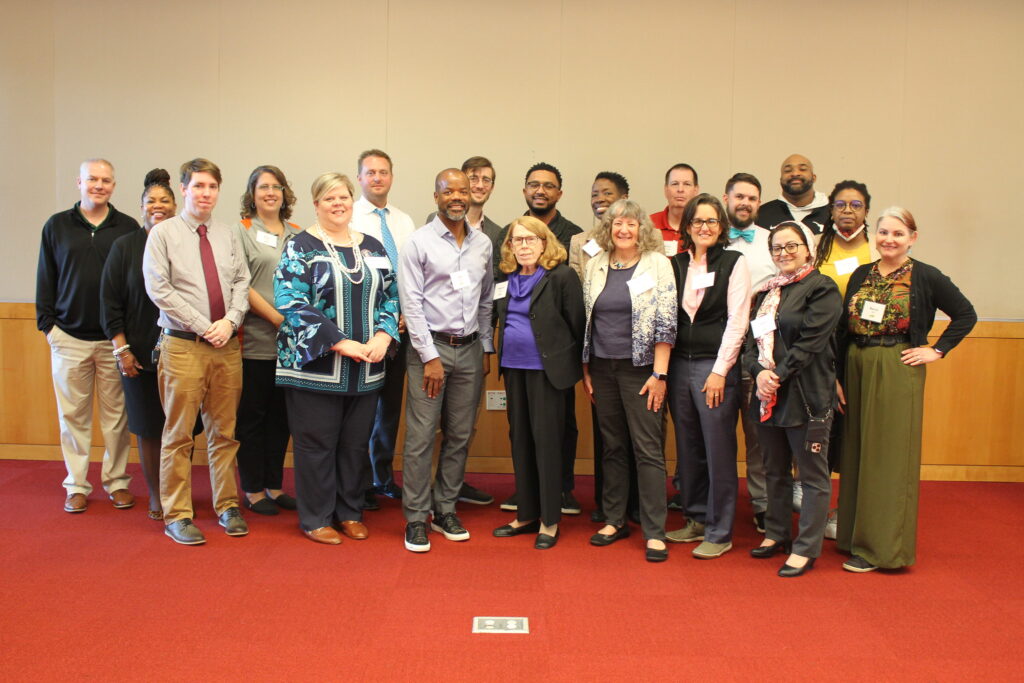
According to a recent North Carolina Department of Public Instruction (DPI) presentation to state lawmakers, by the year 2040, 70% of all jobs will require some level of competency in computer science. DPI has already begun to embed computer science into the K-5 standards so they can begin to understand key concepts and prepare for the upcoming graduation requirement.
This year, the General Assembly passed a computer science (CS) mandate, SL 2023-132, that will require all North Carolina high school students to take a CS course as part of their graduation requirements and for all middle schools to offer an introductory CS course. Although this is a huge win for computer science education, more preparation is needed in order to ensure all students, schools and districts are prepared for this new requirement.
“We need to do as much as we can to educate the public, schools and teachers on what’s available to them and all the resources,” said Jamey Falkenbury, director of government affairs for DPI. “What is encouraging is the strong level of support around the state not just from the Department but from the business community, nonprofits, the universities, you name it. Everybody wants to come together to make this a success.”
The Friday Institute has been working closely with districts, schools and teachers to prepare them to adopt new CS courses. Over the past two years, the Friday Institute’s CS team has trained over 200 teachers in Code.org’s middle school and high school computer science curriculums.
The convening included a breakdown of the computer science education landscape in North Carolina, small group discussions, action planning and brainstorms, and next steps and commitments. Topics included partnerships and collaborations, funding and resources, teacher professional development and training, and curriculum and standards.
“Seeing new faces here is a huge success and then also thinking about the new things that need to be tackled, like the new policy for CS as a graduation requirement,” said Dunton. “These are big things for not just at the state level to consider but what are those impacts on teachers, on building principals, on superintendents and then ultimately on the students? So listening to the conversations about strategy in the room is exciting and clearly there’s a lot of work to be done.”
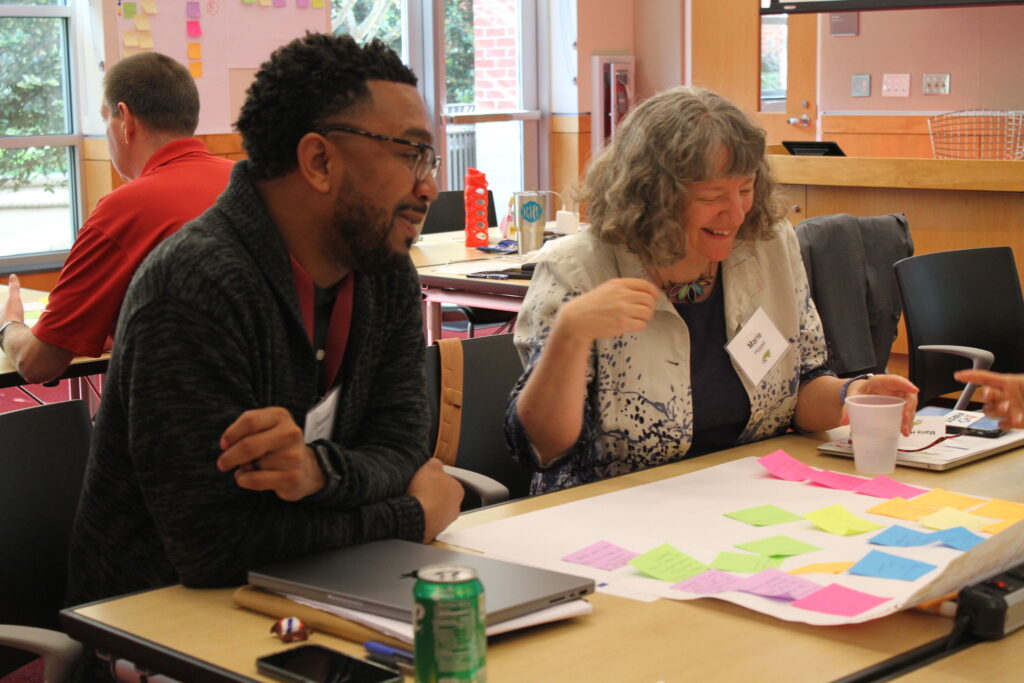
The Friday Institute team hopes the convening will catalyze commitments to computer science education in the state, re-energize partnerships, create working groups to organize activities, identify gaps in participation and recruit diverse members to ensure a more representative group of stakeholders across North Carolina. In addition to the convening, the Friday Institute has committed to updating the Computer Science for North Carolina landscape report, which will serve as a guidepost for the expansion of computer science education in the state.
“They’ve [the Friday Institute] been a tremendous partner for going on a decade now,” said Falkenbury. “When we first started this journey, I think we had about 250 teachers total trained in the entire state, and now we’re in the thousands. It shows with partnership what you can do when nonprofits, the business community, the government, the bureaucracy all come together to get a plan in order; it is quite remarkable.”
- Categories:
